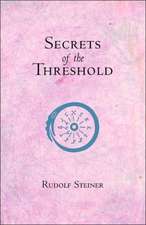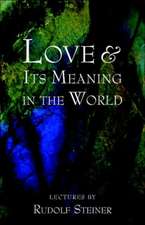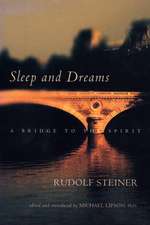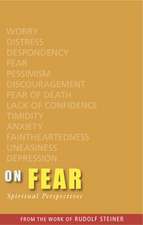The Mystery of the Trinity
Autor Rudolf Steineren Limba Engleză Paperback – 16 dec 2016
In the exciting lectures in Part One, given in Dornach, Switzerland, in 1922, Rudolf Steiner explores the practical consequences of Christian theological spiritual facts as they unfold in human consciousness. Starting with the early Gnostic understanding of the Christ event from within, Steiner shows how medieval theology reached an exoteric view of the spiritual world. It was this view that, coupled with the rise of abstract intellectuality, led to the separation of faith and knowledge that denied humanity access to suprasensory worlds. Using examples from Dionsyius the Areopagite, John Scotus Eriugena, Paracelsus, and Goethe, Steiner then lays the foundations for a path to the suprasensory that would unite faith and knowledge, through the spirit, in a full trinitarian understanding of the human being and the cosmos.
Part Two consists of lectures given in Oxford, England, the following month that deepen our understanding of the Trinity as this may be known through the spirit. The first lecture deals in a remarkable way with the practice of meditation. On the basis of such meditation, Steiner shows how we can begin to understand the cosmic origin of the human being and the meaning of the Mystery of Golgotha for humanity and the cosmos. Above all, he stresses, meditation will allow us to realize the foundations of true knowledge: Ex deo nascimur (From God we are born); In Christo morimur (In Christ we die); Per spiritum sanctum reviscimus (Through the Holy Spirit we are reborn).
Preț: 85.39 lei
Nou
16.34€ • 17.11$ • 13.52£
Carte disponibilă
Livrare economică 15-29 martie
Specificații
ISBN-10: 162148095X
Pagini: 160
Dimensiuni: 140 x 216 x 9 mm
Greutate: 0.21 kg
Ediția:Revised and Upd
Editura: SteinerBooks, Inc




